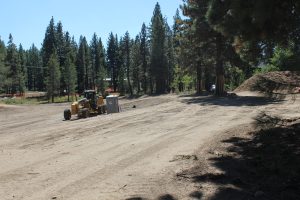The hidden risks of rapid weight loss: A closer look at gallstones, gout, kidney stones, and pancreatitis
In the United States, 73.6 percent of adults are overweight or obese, with 41.9 percent classified as obese. Excess weight increases the risk of type 2 diabetes, cardiovascular disease, stroke, certain cancers, and limited mobility. Given these risks, many people pursue or are prescribed aggressive weight loss interventions that result in very low-calorie intakes. Such treatments may include medications or bariatric surgery. While these measures can be highly effective, rapid weight loss can also cause serious complications that require medical attention. Among the most common and clinically significant are gallstones, gout, uric acid kidney stones, and pancreatitis.
Gallstones and Pancreatitis
Gallstones are cholesterol-rich deposits that form in the gallbladder when bile becomes oversaturated and stagnant. Rapid weight loss accelerates fat breakdown, increasing cholesterol secretion into bile. Simultaneously, low-fat or low-protein diets reduce gallbladder contraction, allowing bile to pool and crystals to form. When stones block bile ducts, especially those leading from the gallbladder, they can cause painful, urgent conditions such as biliary colic, where the blockage creates pressure and cramping pain. If bile remains backed up, it can inflame the gallbladder (cholecystitis) or fully obstruct bile flow.
If a stone blocks the common bile duct near the pancreatic duct, it may trigger pancreatitis, a serious inflammation of the pancreas. The blockage causes digestive enzymes to activate within the pancreas, leading to tissue damage. Symptoms include severe upper abdominal pain, nausea, and vomiting, and may require hospitalization. Prevention includes consuming enough fat and protein to stimulate gallbladder emptying, avoiding extreme calorie restriction, and using ursodeoxycholic acid after bariatric surgery to reduce stone formation.
Gout and Uric Acid Kidney Stones
Excess uric acid, a byproduct of purine metabolism, is responsible for both gout and uric acid kidney stones. During rapid weight loss, tissue breakdown increases purine release, and very low-calorie or ketogenic diets further elevate uric acid levels by reducing its renal clearance due to competition with ketones. When uric acid accumulates in the blood, it can crystallize in joints, triggering painful inflammatory flares known as gout. These flares often begin in the big toe due to its lower temperature and reduced circulation, which favor crystal formation.
Simultaneously, uric acid can precipitate in the urinary tract when urine becomes overly acidic, forming kidney stones that may cause severe flank pain or urinary obstruction. Both complications are more likely after bariatric surgery, particularly in the first year of rapid weight loss. Prevention includes gradual weight loss, hydration, urine alkalinization, and when appropriate, urate-lowering therapy.
Other Risks
Additional complications of rapid weight loss include lean muscle loss, electrolyte imbalances, micronutrient deficiencies, hair thinning, and menstrual disturbances. These are usually reversible with nutritional correction but underscore the need for professional guidance during significant weight reduction efforts.
Summary and Conclusion
Rapid weight loss can lead to serious medical conditions that may require emergency care or long-term management, including gallstones, gout, uric acid kidney stones, and pancreatitis. These risks are heightened by sharp reductions in caloric intake, such as those caused by weight loss medications and bariatric surgery.
The modern food environment has proven difficult, if not impossible, to navigate alone without falling victim to overweight, obesity, or other diet-related chronic diseases. For this reason, weight loss should be gradual, well-planned, and medically supervised. A registered dietitian specializing in weight loss is essential for creating safe, effective, and sustainable strategies that support both fat loss and overall health.
About the Author
Patrick Traynor, PhD, MPH, RD, CPT, is a registered dietitian and founder of MNT Scientific, LLC, an insurance-based nutrition practice serving South Lake Tahoe and Sacramento, CA; Minden, NV; and Ashland, OR. He holds the Interdisciplinary Specialist Certification in Obesity and Weight Management from the Commission on Dietetic Registration. Virtual appointments are also available via telehealth. To request a consultation, visit MNTScientific.com. For inquiries, email patricktraynor@patricktraynor.com.

Support Local Journalism

Support Local Journalism
Readers around the Lake Tahoe Basin and beyond make the Tahoe Tribune's work possible. Your financial contribution supports our efforts to deliver quality, locally relevant journalism.
Now more than ever, your support is critical to help us keep our community informed about the evolving coronavirus pandemic and the impact it is having locally. Every contribution, however large or small, will make a difference.
Your donation will help us continue to cover COVID-19 and our other vital local news.










